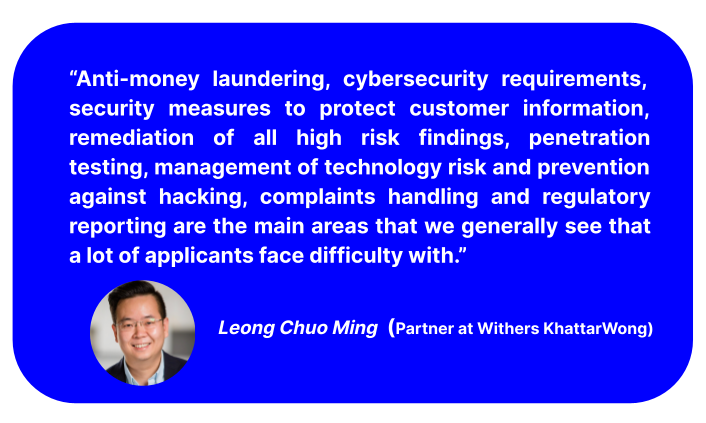Payment Service Providers & Anti-Money Laundering Compliance
Singapore has continuously encouraged financial innovation and emerged as a fintech hub for the world. In line with its pro-innovation approach, the city-state wanted a new regulatory framework ensuring regulatory certainty and consumer safeguards. The country also wanted to address the rising risk of money laundering in the new payments landscape, effectively preventing criminals' misuse of the financial system.
Commenced on 28 January 2020, the Payment Services Act (PSA) is the result of Singapore’s efforts to bring flexibility and better adherence to its regulatory framework for payment systems and payment service providers (PSPs). It provides a single licensing framework for seven payment activities comprising account issuance, domestic money transfers, cross-border money transfers, merchant acquisition, e-money issuance, digital payment token dealing or exchange and money changing.
In order to dive deep into the anti-money laundering (AML) and other compliance requirements under the PSA, Tookitaki conducted a webinar on September 15 as part of our Compliant Conversations webinar series. Our eminent panellists, Leong Chuo Ming (Partner at Withers KhattarWong) and Akshara Karanjekar (AML Expert at Tookitaki), discussed various compliance requirements under the PSA and shared how technology can ensure compliance amidst heightened risks. They also cleared the doubts of our active audience, who came up with some excellent questions, exploring the practicality of technology in real-life situations.
The Key Topics of Discussion
-
All about the PSA
Our panellist, Chuo Ming talked broadly about the landmark legislation, describing its target audience, the new licensing landscape for payment services and the services requiring licences under the Act. Chuo Ming specified seven sub-sectors within the payment services industry that come under the ambit of the regulation and the two types of licences issued by the Monetary Authority of Singapore (MAS) based on their scale of operations.
-
Licensing Requirements Under the PSA
Chuo Ming also discussed the requirements for an applicant for a license under the PSA, including anti-money laundering/countering the financing of terrorism (AML/CFT), and detailed the application process for standard payment institution (SPI) and major payment institution (MPI) licences. Furthermore, he pinpointed a few key things that applicants should pay attention to and the minimum time required to submit an application.

-
Ensuring Compliance with the Stringent MAS Norms
Tookitaki AML expert Akshara spoke about how the MAS regulates payment fintech companies to ensure compliance, given that numerous types of payment services are now coming under the regulatory radar. She noted that only those who have proper safeguards to mitigate the risk would be allowed to operate in Singapore.
Akshara also elaborated on the modular and risk-based approach to regulating fintech firms and the key risks that fintechs must address to adhere to the PSA, including AML/CFT, safeguarding funds in transit, interoperability of the payment systems and technology risk.
-
AML/CFT Regulations
Having specified AML/CFT as a key risk area for fintech firms, Akshara also explained why it is necessary for payment services to comply with the AML/CFT regulations, given the fact that new payment methods have paved ways for transferring illicit funds.
She elaborated on the compliance industry’s buzzword – the risk-based approach. She also listed the important measures that fintech firms should undertake to ensure compliance with AML/CFT regulations in Singapore, such as customer due diligence, continuous transaction monitoring, suspicious transaction reporting, record keeping and internal governance.
-1.png?width=756&name=SG-PSA-Webinar%20blog%20(1)-1.png)
-
Questions Worth Brainstorming
Our panellists answered all the questions from the audience, including:
- What comes after obtaining a payment services licence
- Potential further developments and updates to the PS Act, especially the PSA Amendment Act of 2021
- Following up with post-transaction monitoring when it comes to fraudulence discovered by the remittance bank
- Due diligence measures to be followed if a payment service provider has an exempt product as defined by PSN01
- How Tookitaki helps customers with ongoing monitoring and empowers them to fight financial crime
The webinar touched upon unique thoughts on how payment services can ensure compliance under Singapore's new forward-looking and simplified licensing regime. The government speaks of the PS Act as an activity-based and risk-focused regulation, and at Tookitaki, we help our customers undertake a risk-based approach to AML compliance with our proven technology solutions.
Hear from our experts about what it takes as a licensee under the PS Act to adhere to the ongoing compliance obligations prescribed by the MAS.
Anti-Financial Crime Compliance with Tookitaki?



